From Dust Bowl to Digital Displacement: Will We Need Another New Deal?
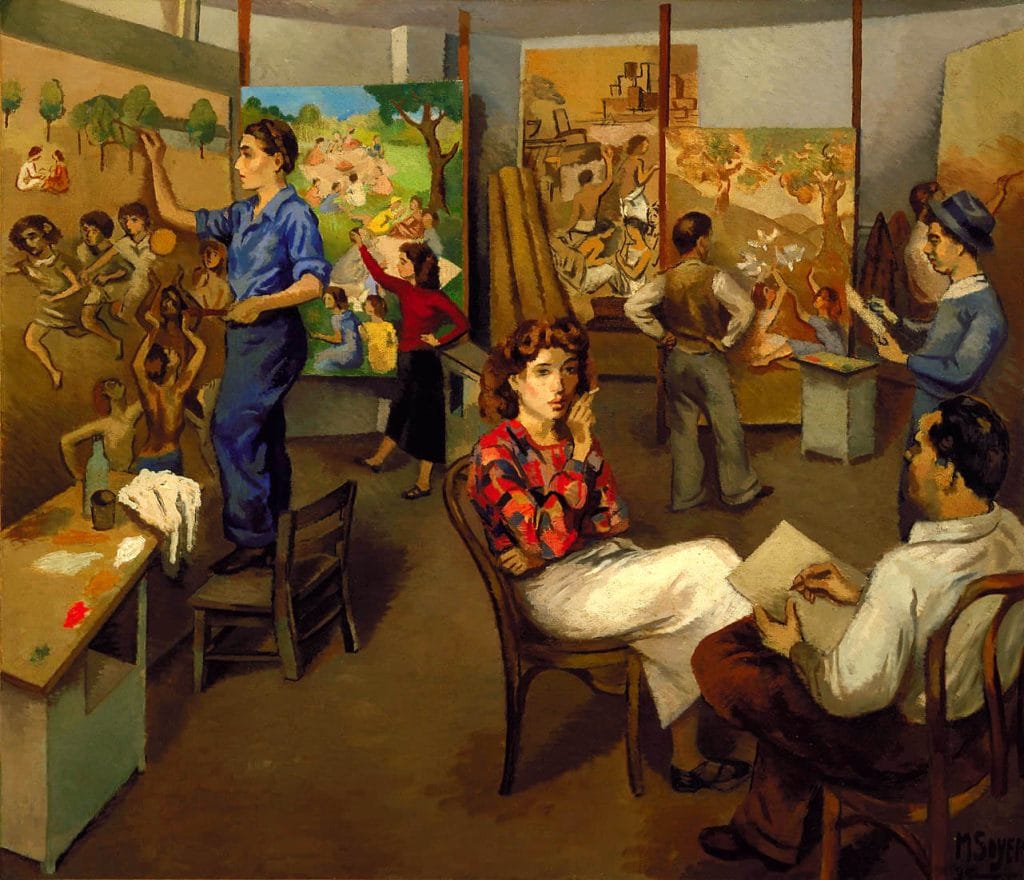
Reader and Godspeed supporter Emma Mattson engaged me recently in a conversation about purpose at work, pointing me to an old episode of The Ezra Klein Show. (The Case Against Loving Your Job, aired in 2021, worth the listen, and deeply influencing Emma’s view on the subject.) I listened, and it got me to thinking about…AI.
I’ve been doing some work with a group at Stanford University that’s researching methods and developing tools to fight digital deception. It’s serious stuff, this new wave of AI and what nefarious forces can accomplish: from financial fraudsters to anti-democratic propaganda to…well, you get it, it’s dark and dangerous stuff.
But what’s really gripped me about AI are its problematic aspects around employment.
So, I’ve been playing around with it, likely as you have been doing, dear reader, in order to better understand it. I’ve been testing how ChatGPT is different from Claude on the same prompt, for instance. I’ve used AI to source new perspectives on my research, test assumptions on an idea, or create an image to adorn this newsletter. Yes, stock imagery sucks.
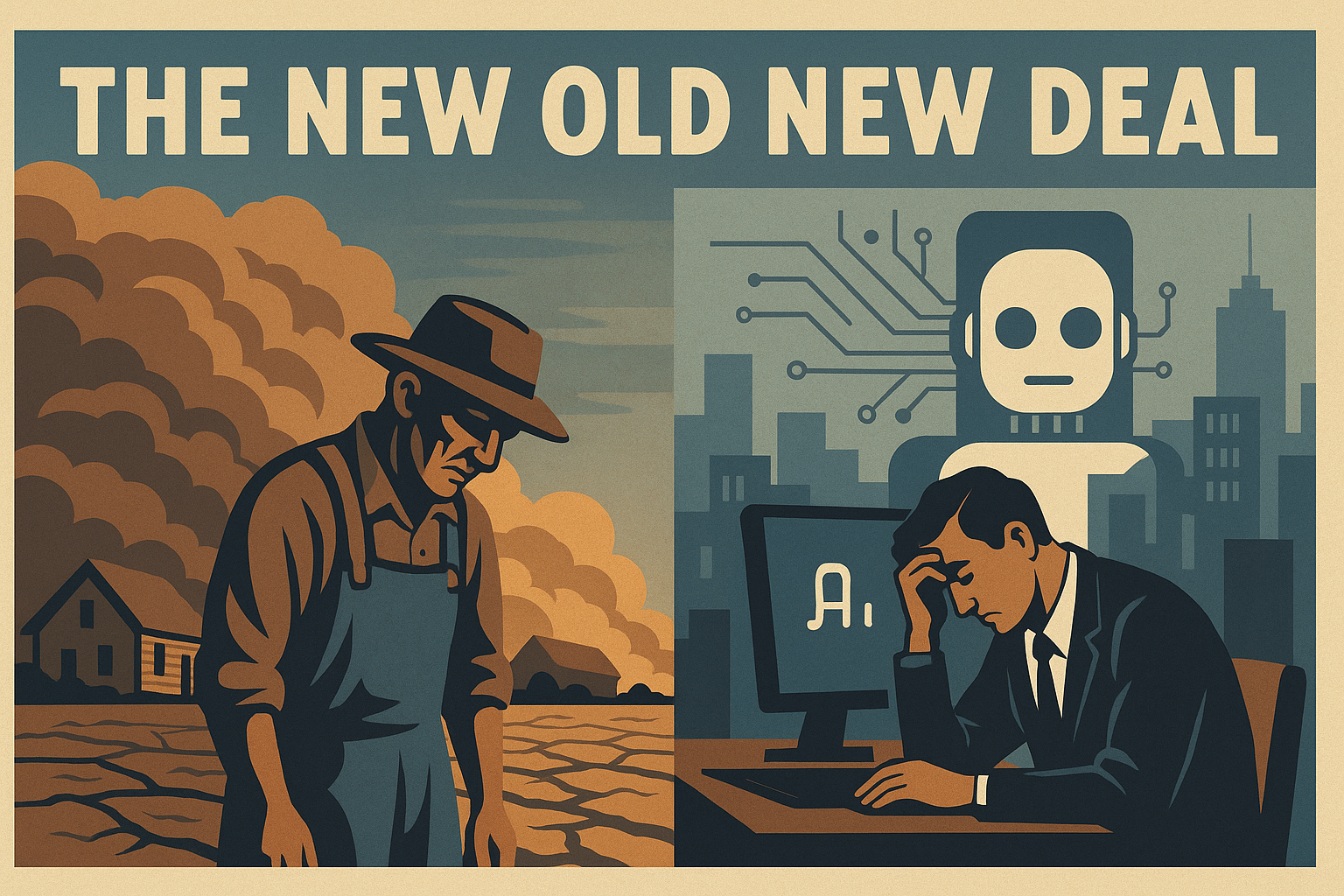
I haven't used it for my writing here. That’s still OG Russ. I mean, why outsource something that gives you great joy?
My experience has been an inverse of the five stages of grief: 1) that’s quick; 2) that’s interesting; 3) that’s helpful; 4) that’s, umm, WOW; and 5) Oh-oh, aka, holy shit!. That last stage is me, as a writer, seeing that it can do much of what I do quite well – not better, mind you, but as well – and in a fraction of the time.
And time in this business is money.
And CEOs love nothing more than 🤑.
Just spit balling here, but I think Russ with AI could likely do the marketing work of eight Russ’s. Or more. Eighty, perhaps?
So, I know it’s coming for my job. Likely your job or portions of it as well.
And here we are back to the whole “future of work thing.”
The advice from on high has been to become facile at working with AI, which in my viewpoint is the predecessor of working for AI.
I wrote about the sneaky potential of AI for job displacement, first deleterious and then cataclysmic, in my June 10 post, Radical Abundance. (It’s the same post that prompted so much reader discussion here about whether we do, or don’t, derive purpose from our work.)
I smirked about tech CEOs and their claims that AI will free people to pursue their higher-self activities – without saying exactly how that would happen.
So, if we are facing big-time job loss, and with that a person’s financial livelihood, how then will people freed up to find their higher calling in life?
Back to the Future
We’ve been here before.
At the height of the Great Depression in 1933, 25% of this country’s workers were unemployed. Our current unemployment rate in the U.S. is just above 4% – so we’d need to climb another 21% to hit the Great Depression’s level of unemployment.
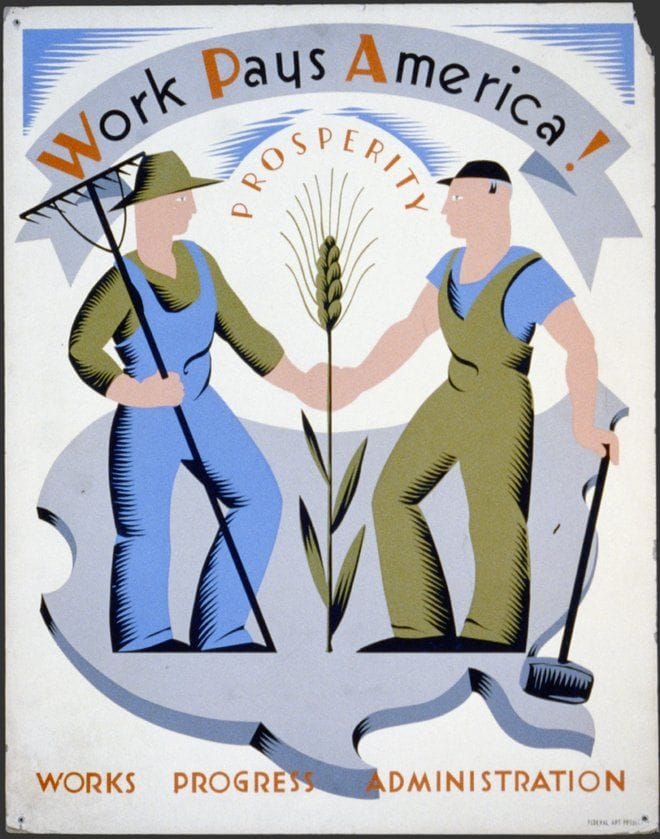
Might AI displace that number of workers – and could companies adapt quickly enough to absorb those workers in other roles? To the former, I’d say it’s plausible. Certainly, we could see unemployment hitting 10%, which would be tough sledding for the economy and millions of individuals.
And to the latter of redeploying workers within a company – hell no. CEOs wouldn’t want to reassign those workers as they’d be sacrificing cost savings engendered by AI.
It’s Old. And it’s New.
I first learned about the New Deal and its programs – the Works Progress Administration, the Civilian Conservation Corps, among others – during my junior year of high school in Mr. Roy’s social studies class. For some reason, it captured my imagination (unlike geometry) and has held it to this day: The idea of a country coming together in the toughest of times, the dust bowl photos, building enduring historical structures (shout-out to Oregon’s Timberline Lodge), and the inspirational poster artwork.
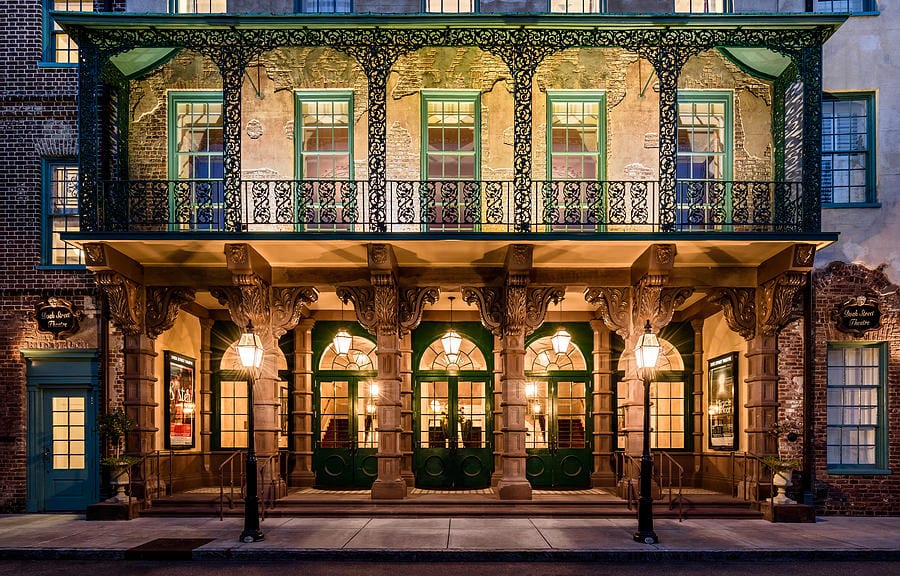
Franklin D. Roosevelt’s government created jobs for millions of people. Many of the jobs simply gave people the ability to earn a paycheck laboring for the common good, building roads to connect farms with urban markets and community spaces to bring people together like the Dock Street Theater in Charleston, South Carolina.
But there were also opportunities that enabled people to make a living doing purposeful work through arts and cultural programs.
More than 10,000 artists were employed by the Federal Art Project. We paid people to write songs. (Hello, Woody Guthrie, via the New Deal creation of the Bonneville Power Administration). Make photos (Dorothea Lange and Berenice Abbott). To challenge our reality with abstract expressionist paintings (Mark Rothko). We reached into the African American and Native American arts communities to fund artists like Aaron Douglas and Native American artists, including Gerald Nailor.
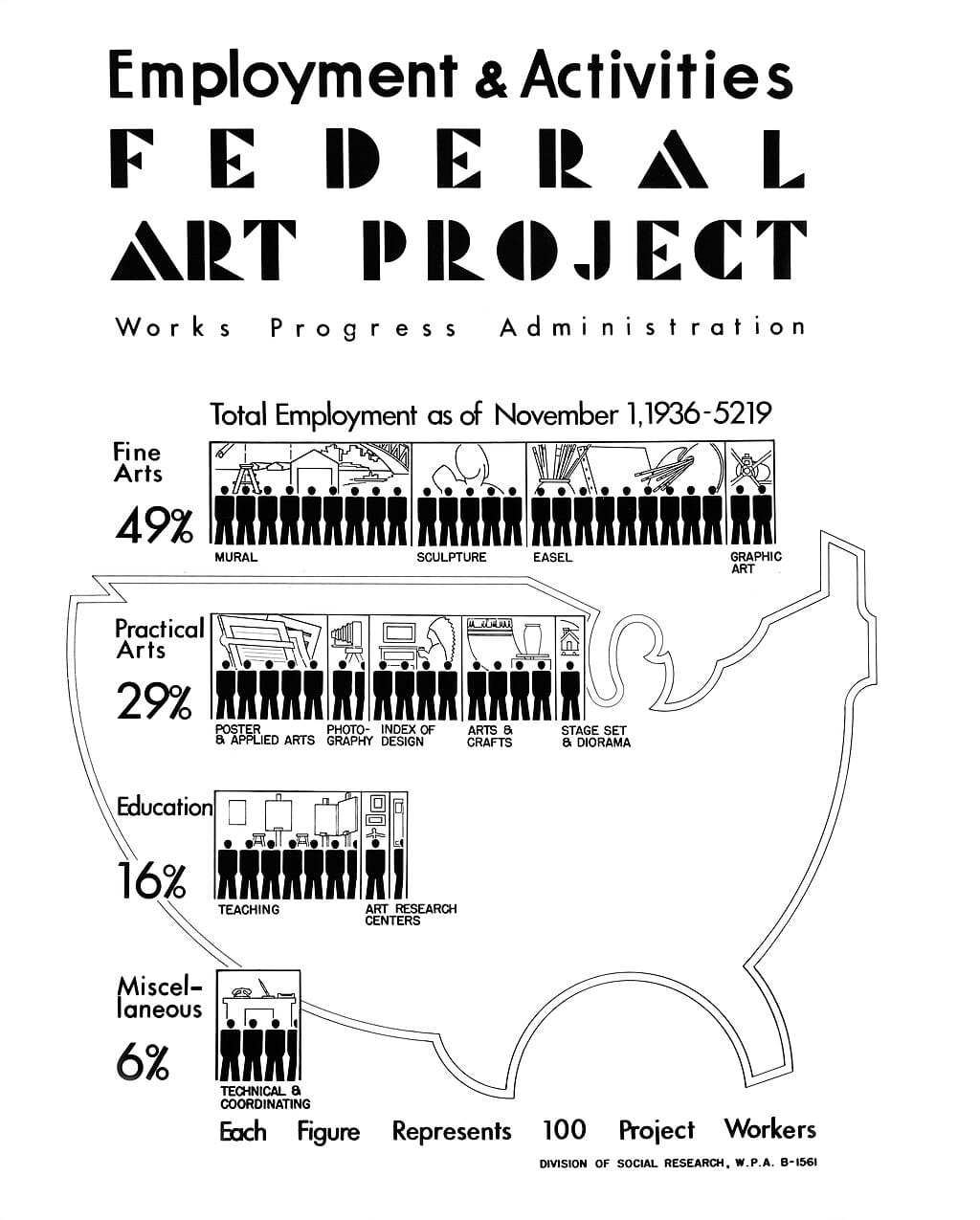

I’m not advocating for this, but think it’s a logical outcome that government will play a larger role in our lives with AI’s ascendance. Sure, those will be fighting words to many, but I believe it’s a real possibility. As I say, we’ve been here before.
And maybe, just maybe, this will be your opportunity to get paid for the quilts you make.
Mind you, this would be different than the Great Depression. Companies in the here and now would be doing just fine, leveraging AI to become automatons for accumulation. The similarity, then, is that in both instances large numbers of people are displaced from work.
Beyond a New Deal work program, Universal Basic Income (UBI) is often mentioned as a solution to income inequality, but here it could be used as a larger blanket to provide income across society. People would then be left to figure out how to spend it beyond the necessities with no work strings attached.
For a look at how UBI might work, we can look to our friends in Germany, where an interesting 3-year study on UBI recently concluded.
So, there are historical templates and new ideas for how to adjust to a potential AI revolution that will evolve our ideas of work while keeping our well-being intact.
After all, retired folks have been figuring how how to live life meaningfully without work for quite awhile. Of course, many are doing this on a foundation of hard-earned savings over a multi-decade career, Social Security, and Medicare.
So we can probably figure out what to do with our time, though it begs a question: How will we pay for this?
I’ll be offering some ideas on this in the next issue of Godspeed.
Godspeed, friends.
Russ
💬 Think About It
"Your profession is not what brings home your weekly paycheck, your profession is what you're put here on earth to do, with such passion and such intensity that it becomes spiritual in calling." Vincent Van Gogh
💥 Quick Hits
• Banned books - meet banned words? – We can really get behind Lake Superior State University and its list of banned words for 2025.
• Substack's Nazi problem – In a recent post, I wondered if Substack's Nazi problems were behind it – and if it might be an option for me to expand the reach of Godspeed. Apparently not on both counts, as Casey Newton of Platformer details here.
• Classic stamps redux: You don't have to be a philatelist to get a kick out of this one; whether it's Mr. Rogers or the Emancipation Proclamation, you can vote here to have the U.S.P.S. bring back your favorite stamp.
Find the Most Meaningful Work of Your Career
Our partner One Work has you covered with opportunities that go beyond a paycheck, a cubicle, or a weekly team Zoom call. You'll find purposeful jobs like those below at the One Work job board.
• Small Door Veterinary - If your career is going to the dogs, then why not go all the way? Freelance Content Creator or Social Media Management, New York, NY.
• Butterfly Network - Join a health tech company with a mission to make medical imaging available to everyone around the world. Vice President of People, New York, NY.
• Project Canary - Hone your climate pitch and help energy companies reduce emissions and streamline reporting. Senior Director of Business Development/Sales, REMOTE.
This train's running to a world where more businesses create social and environmental impact. Please stoke our engine with a little fuel to keep the posts coming. 💰🔥🚂🙏
Need help in some way? Have a story idea, question, or request? Perhaps a social entrepreneur we should interview? Let us know – We're here to help. Just reply to this email with whatever you've got. We'll see you next week.
